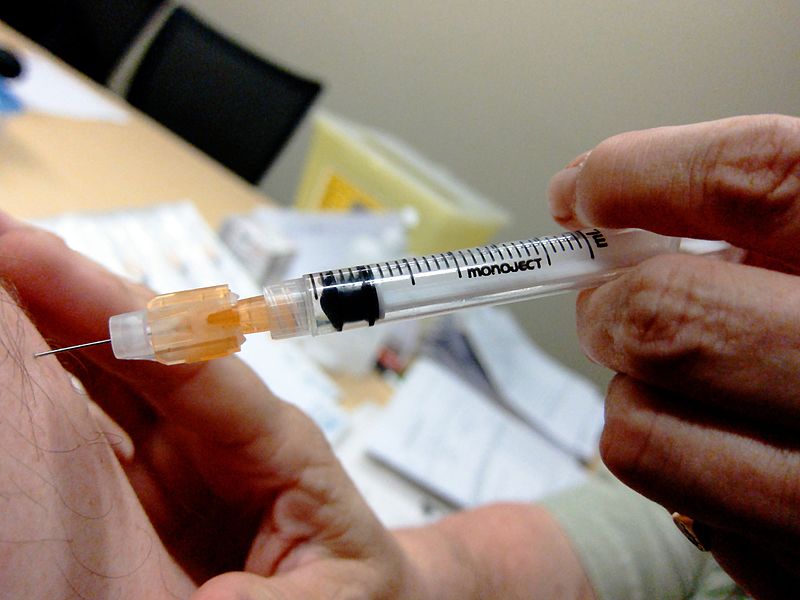It’s flu season once again and it has been as bad as any season since the early 2000s. As of Feb. 12, the hospitalization rate for the flu was 68 people per 100,000. That’s higher than the 64.2 per 100,000 in the 2014-15 flu season.
The same flu strain that was present then is circulating now, and this influenza A virus, known as H3N2, is the deadliest of the seasonal flu strains.
The infection rate has reached 7.7 percent, which equals the peak of the 2009 swine flu pandemic. Most of those affected are young children and the elderly, especially those who do not receive a flu shot.
Only about 40 percent of Americans get flu shots every year, and recently that number has been decreasing. The low numbers of people getting flu shots are troubling, especially now that this year’s flu season is one of the worst America has seen in six years.
With the flu shot only being 36 percent effective this year against the H3N2 virus, many may wonder if a flu shot is even worth getting and if it will provide enough protection to help prevent getting the flu.
Dr. Anne Schuchat and Alex M. Azar II, the new secretary of health and human services, have pointed to a Center for Disease Control study published Monday, Feb. 12, in the journal Pediatrics. The study shows two-thirds of the 675 children and teachers who died of the flu between 2010 and 2016 had not received the vaccine the year they died.
Azar pleaded to the public, “Go get a flu shot!” after sharing the CDC study. “Do it for yourself, your family and your community!”
The flu virus is most commonly passed to others in classrooms, shared living spaces and by close contact with people who show symptoms of the flu. The flu shot can help lower the chances of both you and others around you from getting this virus.
Studies like the CDC’s suggest flu shots do a better job of preventing death than they do sniffles and aches. They also prepare your immune system for battling the flu viruses before they have a chance to make you sick.
Children younger than 9 years old are strongly encouraged to receive a vaccine because it offers greater protection for them in their young age. According to the CDC’s preliminary analysis, the flu vaccine “is about 51 percent effective in children.” Since children are the most vulnerable to the flu virus due to their weak immune systems, the flu shot is most beneficial for them.
The flu shot is not only meant to lower the risk of the flu in children. It is also meant to provide higher health benefits to individuals of all ages. Even though this year’s vaccine is 36 percent effective, that is a higher chance of staying healthy during flu season.
Take care of your family, friends and yourself this flu season, and don’t forget to get vaccinated.
@TheChrony


